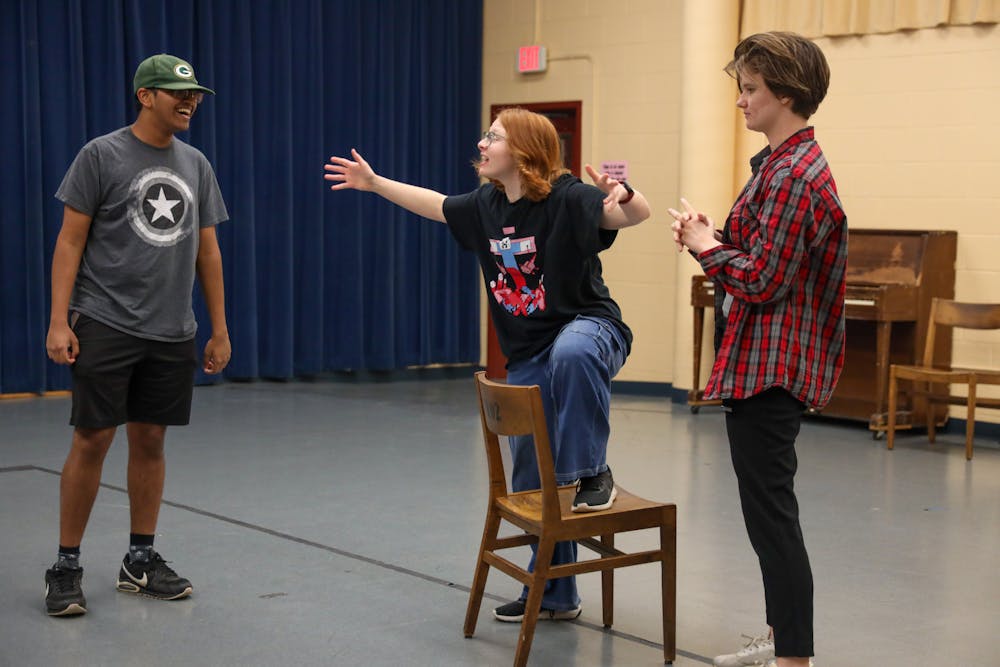Contemporary comedy, no matter the genre, has a strong collegiate audience. Whether it's packing the Koger Center for visiting comedians or liking Instagram reels of local comics doing crowd work, a large part of Columbia's comedy scene is supported by students. As such, USC hosts a plethora of student comedians and regularly schedules comedy events on campus. However, with the new generation of comedy fans attuned to the art form's ethical considerations, comedic performance can easily become more complicated. While this underlying tension may be scary to some, there are student comedians who view this tension as an opportunity for comedy to be more respectful, friendly and vulnerable.
The OverReactors, a student-run comedy troupe at USC, is one of the most important institutions in the campus comedy scene. The group primarily performs improvisational comedy (or "improv," for short): a style of comedy that relies on performers acting out humorous situations without using a script. Due to its unscripted nature, improv is a notoriously difficult style of comedy to perform, leading to many comics shying away from the genre. However, the OverReactors aim to create a comfortable environment for comics of all skill levels to try their hand at improv comedy.
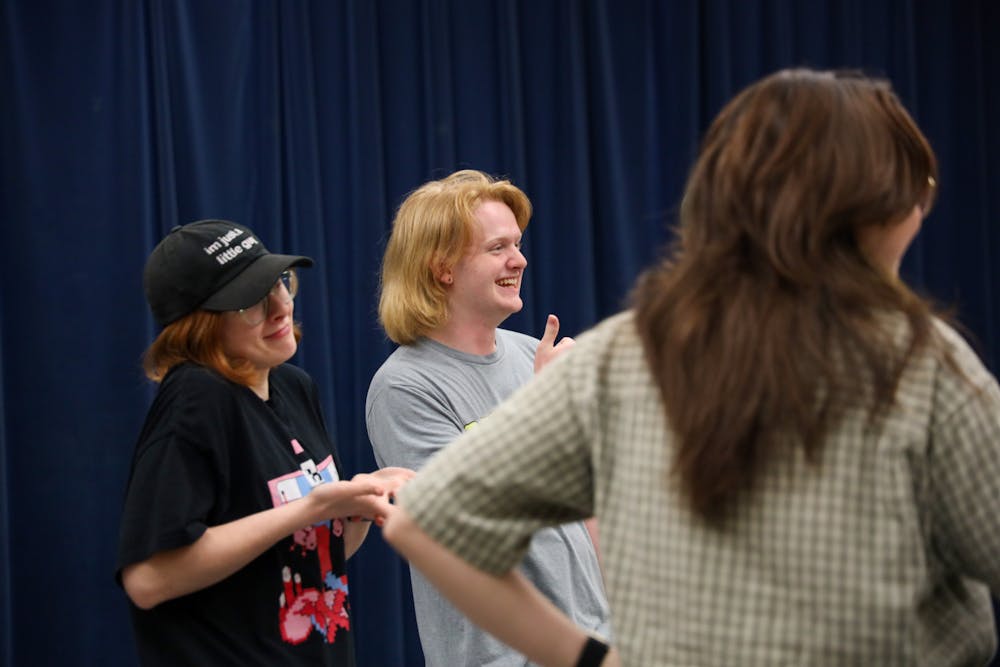
Marina Nichols, president of the OverReactors, mentioned how the group's practice sessions are structured to be as comfortable as possible for new comedians. Typical meetings for the group contain icebreaker games and collaborative acting exercises that are meant to generate trust among members, serving as ample opportunities for groupmates to get to know each other. In addition, Nichols mentioned that attendees are free to sit and watch the meetings if they are not yet comfortable participating.
"Sometimes it takes a few times of being there and understanding what it's all about before you want to jump in and play a game," Nichols said. "And that's fine. Everyone has different levels of comfort."
Through this focus on comfort and mutual trust, the OverReactors have fostered a community where comics of all levels can meet like-minded people. For Nichols, joining the OverReactors was a way for her to continue her comedy career after doing improv throughout middle and high school. She knew a friend who was involved in the OverReactors, and she decided to join the group in her freshman year. However, Nichols remembers feeling intimidated in her first meetings with the group.
"It's one of those things where it's really nerve-wracking at first, to show up with a bunch of people you don't know to do silly stuff in front of other people you don't know. It's like an introvert's worst nightmare," commented Nichols.
Gracen Greenburg, club secretary for the OverReactors, shared Nichols' initial anxiety over participating in the group, especially because Greenburg had no improv experience before joining the club.
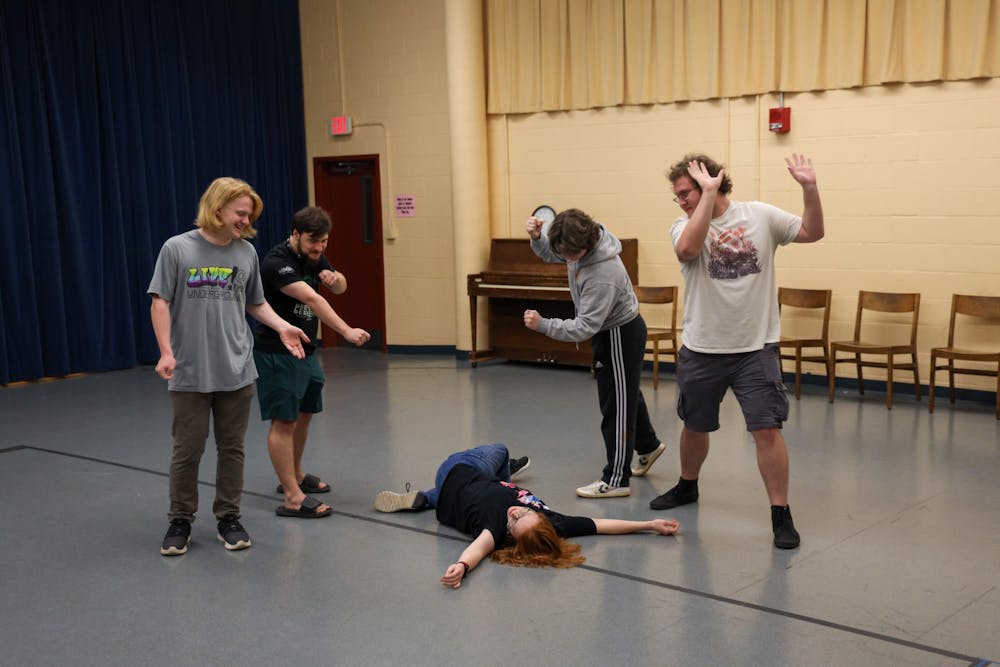
"I was just sitting in the background going, 'I don't know how to do this'," Greenburg said.
Despite these reservations, both Nichols and Greenburg continued their involvement with the OverReactors. They joined the executive team of the club, befriended one another and eventually became roommates. Nichols credits the club's welcoming environment for their success in the improv community, particularly their fellow comedians' willingness to be vulnerable.
"I think it's one of those places where there is a baseline. Everybody is there for the same reason: you all accepting that you're going to be silly, you're going to be vulnerable and that's okay," said Nichols.
However, in the nation's current comedy scene, this vulnerability can often be ignored. In response to the United States' fraught social tensions, comics have begun to discuss the ethics of their craft, specifically the ethics of edgy humor. New terminology such as "punching down," which describes making derogatory jokes about a vulnerable person or group of people, is being used to label and discourage harmful forms of comedy. Not everyone has reacted positively to this new discourse though, as a new branch of deliberately offensive comedy has cropped up to counter this sensitivity. As such, much of modern comedy is caught between these two opposing schools, and navigating this boundary can be a very difficult task.
Maintaining mutual respect between actors is incredibly important for the OverReactors, and for this reason the group doesn't use comedy that could be interpreted as derogatory. In particular, Greenburg mentioned the group's avoidance of any joke that "punches down" on the audience.
"We always have each other's backs, and by having each other's backs we have to respect each other and know each other's limits," she said.
Furthermore, Nichols emphasized the apolitical and lighthearted nature of the OverReactor's comedic style, highlighting how the group's shows function as an escape from the world's tensions rather than a reminder of them.
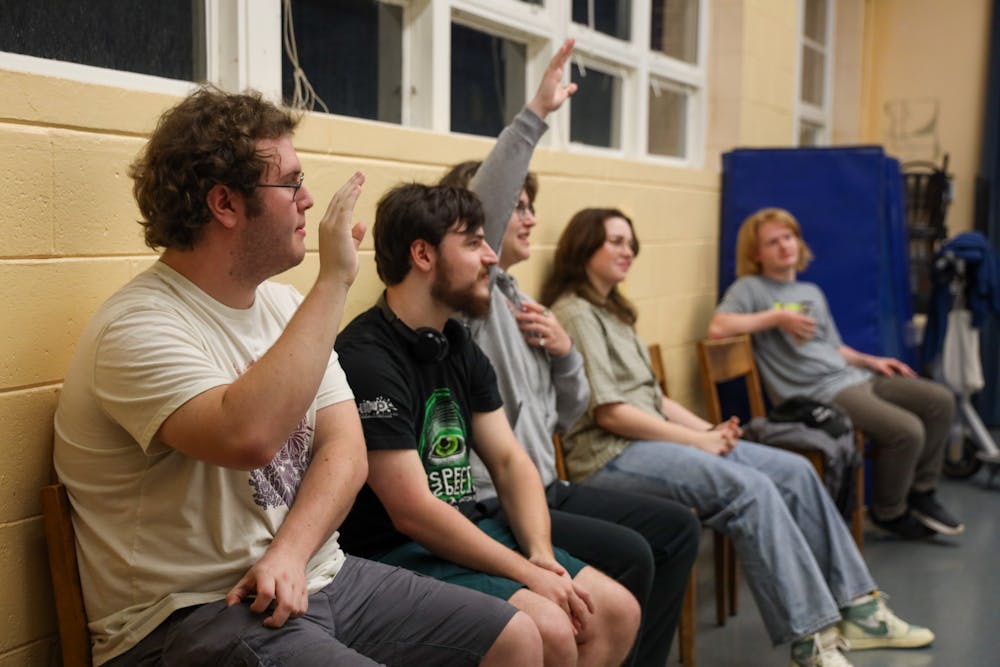
"We're not trying to purport a political stance," Nichols said. "We're trying to take a step back from commentary comedy and just give people a little bubble to live in for an hour when they attend our shows."
The group has still seen the influence of modern abrasive comedy in their interactions with their audience. OverReactors shows typically include lots of audience participation, primarily through segments in which the actors take spectators' suggestions for scenes to act out. Still, Nichols noted that actors in the group have occasionally received inappropriate or politically charged scene requests from audience members. But, like all good comics, OverReactors members are trained to diffuse this tension.
"If you ask for a suggestion and the only thing you hear is something that will promote a downer or an unsafe environment you say, 'What was that?' and then more people say suggestions and you pick something else," she said.
In the OverReactors' practices and live shows, mutual respect comes first, and both Nichols and Greenburg hearkened to how this respect has created a welcoming atmosphere for comedy. Many of their fellow OverReactors have become their close friends, and with these friends the duo is able to create the art that they love with the people that they love. Mostly, Nichols and Greenburg spoke about their thankfulness for being a part of this community.
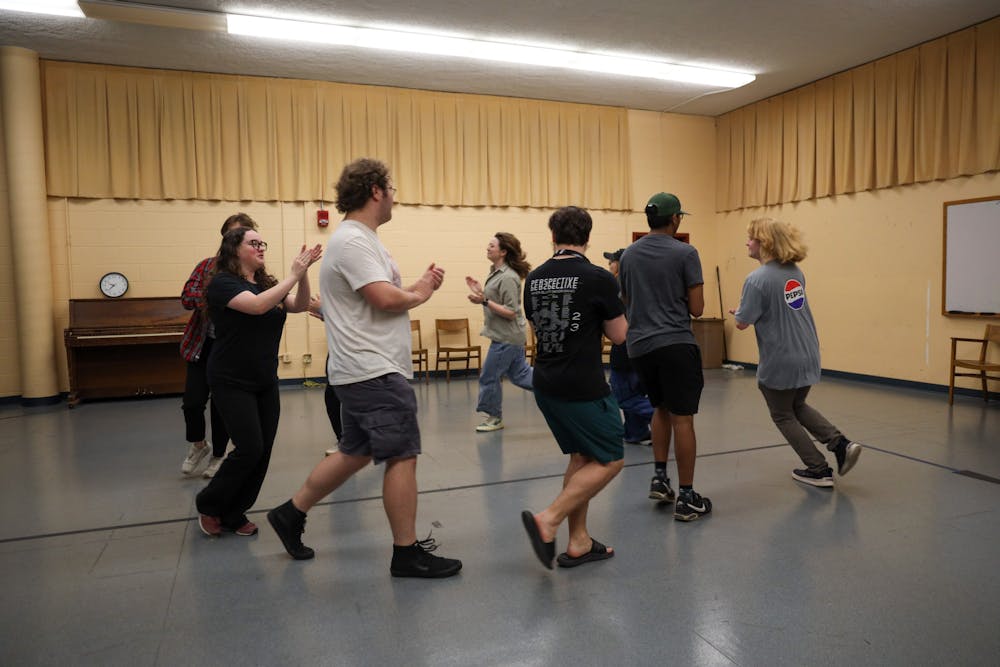
"If my week has been horrible—it's been awful, I kind of want to die—but there's improv on Tuesdays and Thursdays, and that makes everything okay, at least for that little bit," Greenburg said.
Above all else, the OverReactors believe that they are all in this together, a sentiment they articulate through their weekly post-practice ritual.
"We always end our practices in a circle, so you get the back of the person to your right. So, if Gracen was to my right, I would be like 'I got your back, Gracen' and we put hands on backs, all the way through the circle," said Nichols.
If you are interested in seeing the OverReactors in action, the group typically holds open practices on Tuesdays and Thursdays from 9:30-10:30 PM.
